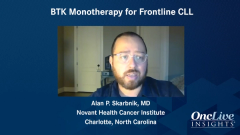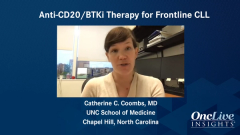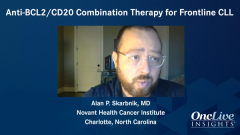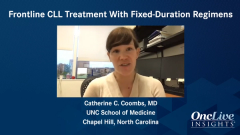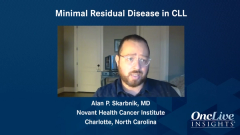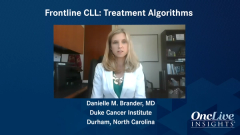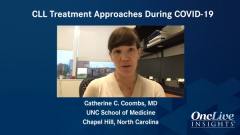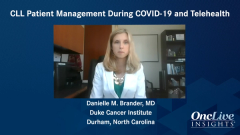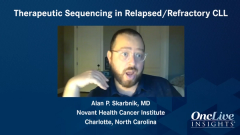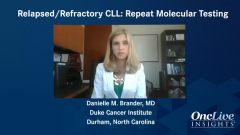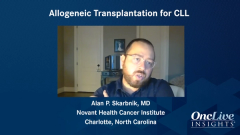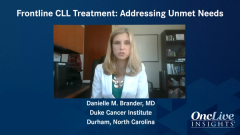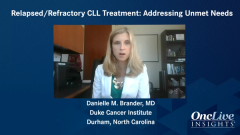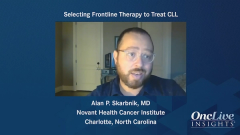
Allogeneic Transplantation for CLL
Episodes in this series

Danielle M. Brander, MD: One question that sometimes still comes up is, what’s the role of cellular therapy for patients with CLL [chronic lymphocytic leukemia] or SLL [small lymphocytic leukemia]? Historically, allogeneic stem cell transplant has been difficult for patients with CLL or SLL because of both the short- and longer-term safety adverse effects for patients. With the relapsed and refractory setting, it is important to remember that allogeneic stem cell transplant best outcomes occur for patients who are already in a good response for whatever therapy. If a patient relapses, even in their second or third or subsequent relapse for their CLL or SLL, they’re not going to be able to move immediately to transplant if they have measurable or clinically progressive disease. The role of transplant there can’t overcome the progressive or significant disease burden. Patients are going to have to go on another therapy to get their disease control.
This has been shown from prior transplant studies showing that transplant can overcome some of the high-risk markers, such as if patients have deletion 17p, or are complex karyotype, but it can’t overcome patients who are not in a good response prior to going to transplant. Those are the historical data, and then more recently there have been published data in the era of the novel therapeutics showing the same thing for transplant. Even though it’s small numbers, a transplant can still benefit patients after novel therapy if they’re in a good response. However, this is not if they have a significant amount of disease and certainly not if they have progressive disease going into the transplant.
There may still be a role for patients who are truly refractory, not just intolerant to the novel agent, but become resistant to novel agents and you’re getting them into a response. We still talk to them about the role of transplant, but they have to be getting into a response before discussing it, not using the transplant for patients with significant remaining or certainly not with actively progressive disease.
Andrew P. Skarbnik, MD: Allogeneic stem cell transplantation is the only potentially curative approach for CLL. It’s certainly for highly selective individuals, with an appropriate donor, the patient should have a low comorbidity index, and be young and fit. Given the risks associated with allogeneic stem cell transplant, you can have up to 20% mortality in the first 12 months, depending on patient donor and patient status. Considering that most patients with CLL are older, it is something that is falling out of fashion, given the newer therapies we have available. There is this retrospective series of allogeneic stem cell transplantation in the novel agent era, and it doesn’t seem that previous use of novel agents is detrimental. By novel agents, I’m saying BCL2, PI3 kinase, or BTK [Bruton tyrosine kinase] inhibitors, are not detrimental to the therapeutic use of allogeneic transplant for patients. Because most of the patients are enduring a very long disease-controlled period with the newer agents, we’re not doing as many allogeneic stem cell transplantations, but it’s still a valid choice for the right patient with aggressive disease. Particularly for patients who have Richter transformation, allogeneic transplant makes a strong case for that.
Catherine C. Coombs, MD: I don’t use transplant often in CLL. This is a real success of the therapies that have been developed, that we often don’t need to consider a transplant. That being said, there are some patients for whom I think about transplant. The people we do think about transplant for are the ones who are fit, young, being under 75 years old, active without significant comorbidities, who have progressed on most of the available therapies. Especially, I consider it for people with TP53 deletion or mutation, who fit that profile otherwise of being an appropriate medical candidate for that procedure.
Transcript Edited for Clarity


